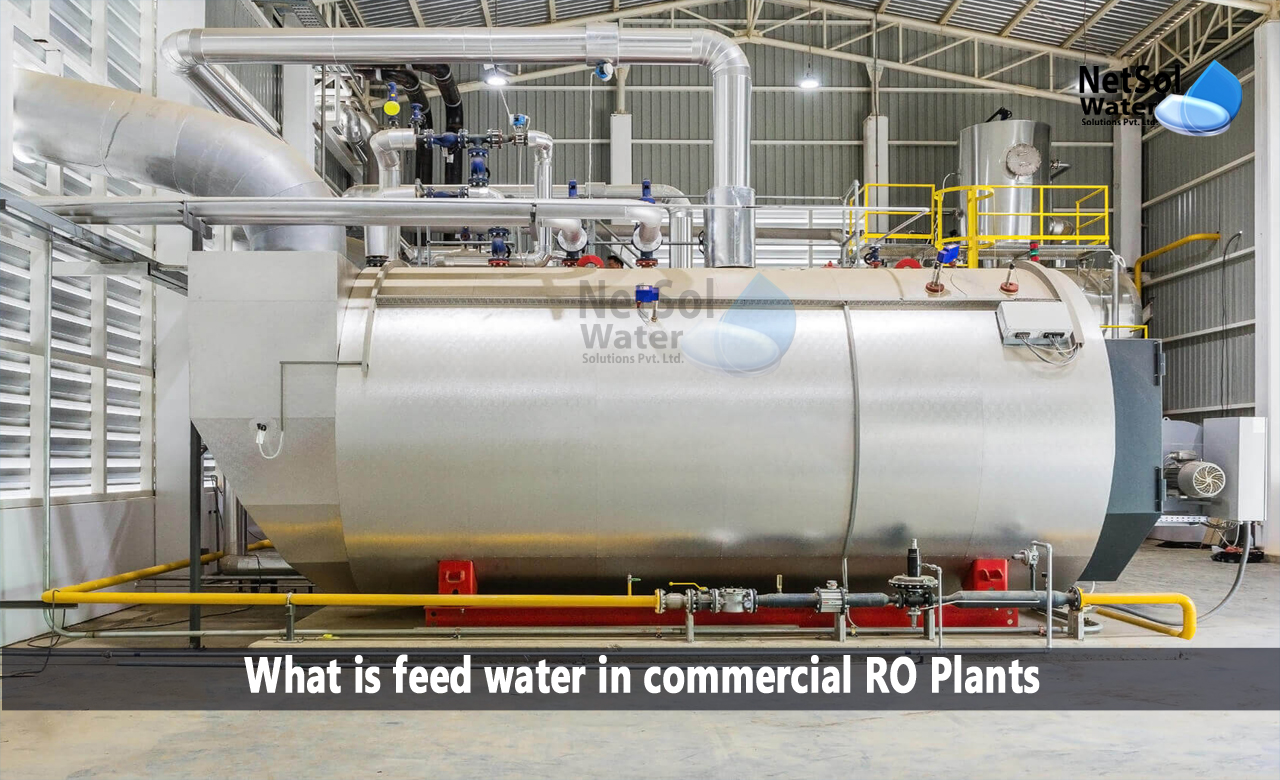What is feed water in commercial RO Plants?
Water that is supplied to boilers for the purpose, of producing hot water and steam, is known as feedwater. The most typical location for it is in thermal power plants, where boiler feedwater tanks are used to store and condition it.
Other industrial facilities, like the petrochemical sector, where boilers are a crucial component of the production process, also use feedwater. High-quality water is necessary to avoid scaling, rust development, and other corrosive consequences.
Let’s understand the concept of feedwater in commercial RO Plants.
Bacteria in the feed water
Feed water contains harmful microorganisms that can make people who labour in these settings ill, exhausted, and nauseous. However, RO Plants from Netsol Water, clean and disinfect your feed water to make it safe for use at work. The cleaning procedure is carried out by RO water treatment plant in a seamless and effective way.
Lead
Lead pipes that are flaking, melting, old or corroded can introduce harmful substances, into the water they transport. Certain industrial goods may become damaged when used in washing or rinsing.
Blood poisoning, cancer, heart disease, and brain damage have all been related to lead exposure. Since, the water is used and recycled in a closed system, trace amounts of lead can accumulate to dangerous levels.
We are well known for offering solutions through RO plants for apartments, in addition to providing water treatment solutions for various production industries.
Chlorine
In order to remove contaminants during water treatment, chlorine is normally added in small amounts at the feed water source. On the other hand, chloramine is a comparable substance that is frequently utilised by municipal water treatment organisations.
Netsol uses the innovations in their commercial RO water treatment facilities, to deliver satisfying outcomes.
Chromium
Chromium-6 cross-contamination frequently occurs at industrial sites. It can enter closed systems, unintentionally enter ground water, and feed water and wastewater lines, as well as reach water supplies.
The RO plants from Netsol are successful at removing these dangerous impurities. Chromium contamination frequently comes from unsafe wastewater outlets. As a well-known manufacturer of RO water plants, we work to help enterprises protect their equipment from dangerous impurities.
Feed Water Treatment
A pre-treatment method used in boiler systems to manage deposition, get rid of pollutants, and stop corrosion is called feedwater treatment. In a boiler system, water is transformed into steam, which has an expansion capacity of up to 1000 times, and moves through steam pipes at a speed of 100 km/h.
If the feedwater is not properly treated, corrosion and scale formation occur in a plant or facility that produces steam.
What is the process of commercial RO Plant in relation to feed water treatment?
One of the most important problems with steam systems that consume a lot of water is corrosion. There is a lot of dissolved oxygen in fresh water. This oxygen becomes particularly corrosive at high temperatures, especially to steel pipes in carbon-based boiler systems.
De-aeration towers and chemicals must be used to remove the oxygen from the clean water, used to create saturated steam in order to prevent corrosion. This is the main goal of Netsol’s feedwater treatment by using RO Plants as a pretreatment step.
Conclusion
Boiler feedwater treatment is a necessary procedure since water treatment is essential, to the efficient operation of boilers. This is because using untreated water in areas with high temperatures and pressures can result in a number of issues. Among these are problems with overheating, expensive maintenance, inefficient heat transfer, and others.
Feedwater should therefore be adequately treated prior to distribution, to other components of the system. During treatment, corrosive substances are normally eliminated from feedwater with the aid of a de-aerator.
How can we assist?
Netsol Water provides the best RO Plants for commercial and industrial purposes. A semipermeable membrane, a carbon filter, and a sediment filter are all components of a three-stage reverse osmosis system. To remove particles that the first membrane could have missed, a four-stage system can be added as per need.
Also, each system can be customized to meet the requirements of the customer. For further information or to make a purchase of water and wastewater treatment plants, please contact us at +91-9650608473 or enquiry@netsolwater.com



